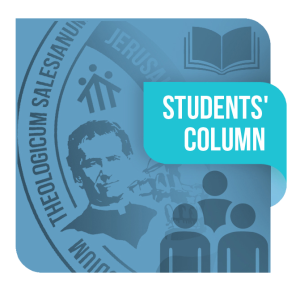My reflection about death begins with an illustration of a valid syllogism, 'All men are mortal. Socrates is a man. Therefore, Socrates is mortal.’ The mortality of Socrates is correctly inferred from the two premises, the major and the minor, linked together by their middle term. The fact that Socrates is long since dead may have helped manoeuver his argument. Death (מוות (remains an abstract proposition to which we give, to use Cardinal Newman's expression, a 'notional' and not a 'real' assent. It is always the mortality of Socrates, or someone else's, that is the matter under consideration, not mine. Metaphysics, according to Aristotle, should not be taught to people under the age of thirty. Moreover, given today's much greater longevity, Aristotle would no doubt extend the age limit considerably. Because they would not be mature enough to comprehend it, so death is not an appropriate subject for the young's mental, psychological and spiritual capacities due to their innocence. Being a Christian and not only that, but also a theologian student of which I am aware that theology is not simply a matter of interpreting scriptures. The Bible or the Quran bring the amazing concept of a metaphysical force that death is a physical universe being, that gives hope only in the risen Lord. I make it clear that I have never been close to death so I am not giving a first-hand experience and a total objectivity of it. But my emotions exists in it and only hope compromises my rationality and balance. I have come to the affirmation that, this ‘death mysticism’ by dying in baptism which every Christian dies, buried with, rises sacramentally to a new life in Christ (Trinity). However, death is a participation in Christ's death. Our physical death, besides being a natural physical end, is also a punishment for sin. Therefore, dying to sin is already a preparation for and overcoming physical death. This journey from death to life is sustained throughout our lives by other sacraments, especially by the Eucharist which has been called the Medicine of Immortality, deepening the Christian's companionship with Christ in suffering and death.
Moreover, in all these ministries, the Church often holds out the passion and death of Jesus as the model of patience and obedience, urging the sick and dying to unite themselves with Christ and to 'die like Jesus' (ישוע כתו למות .( The two cries of Jesus on the cross, 'My God, my God, why have you forsaken me?' (Mark 15:34) and 'Father, into your hands I commend my spirit' (Luke 23:46), comforts the dying in their conflicting experiences of remoteness from and nearness to God, doubt and faith, despair and hope, defiant rebellion and loving obedience in the face of death. The Church also recommends that the dying 'offer up' their sufferings to God as a way to merit eternal life. In conclusion, death is the permanent, irreversible cessation of all biological functions that sustain a living organism. Therefore, it is in the light of the kingdom of God that the resurrection of Jesus and ours must be understood. Resurrection is not coming back to life, being 'reunited' (התאחד ( with our bodies. The core of Jesus' resurrection does not lie in his regaining his former body but in his new and transformed life with God and in God, in the peace and love of God's reign for which he lived and died. So too will our own resurrection be: we do not live and hope for the reunion with our bodies after death, rather, we live and rejoice and suffer and die for the reign of God, and in this way hope for a new, transformed life in God and with God, in the company of Jesus and all our sisters and brothers, in a new heaven and a new earth.
- Nelson Mwale SDB
May 10, 2021



